Shondaland fans can rejoice. Netflix recently announced that it has renewed randy costume confection "Bridgerton" for a second season. This comes as no surprise — as of early January, "Bridgerton" is one of Netflix's Top 5 most-viewed original shows.
The Regency-era drama was adapted from Julia Quinn's best-selling book series, but with a modern twist – imagining a "color-conscious" version of history in which a Black Queen Charlotte (Golda Roshuevel) would create more opportunities for people of color. The first season follows debutante Daphne Bridgerton (Phoebe Dynevor) as she navigates the marriage mart and her courtship of rakish Duke Simon Bassett (Regé-Jean Page) — all narrated by the "Gossip Girl"-esque Lady Whistledown (Julie Andrews) and her meddling society papers. Since the show's release on Christmas Day, it has regularly graced Netflix's Top 10.
If the next season presumably follows the events in Quinn's second book of the series – one book for each of the eight Bridgerton siblings' love stories – we can expect the spotlight to shift from Daphne to eldest son and heir Anthony Bridgerton (Jonathan Bailey) and his search for the perfect wife. After being dumped by his opera singer lover in the first season, he has decided not to risk his heart again and will simply pick whoever is deemed the "Incomparable" for a loveless yet comfortable marriage. We'll see if that's actually what happens.
A second season could also give the show an opportunity to dig a little deeper into its own universe. Though Season 1 was extremely popular, it received mixed reviews. Early criticism was mostly positive calling the show a fun, bingeable escape — this is where I initially landed, after watching the first few episodes. But early praise yielded to greater analysis and criticism of the show, which pointed to uneven handling of race and consent.
Here are some of the main criticisms (along with a few personal gripes) that Season 2 will hopefully address to make this guilty pleasure a little less guilty:
1) Consent issues
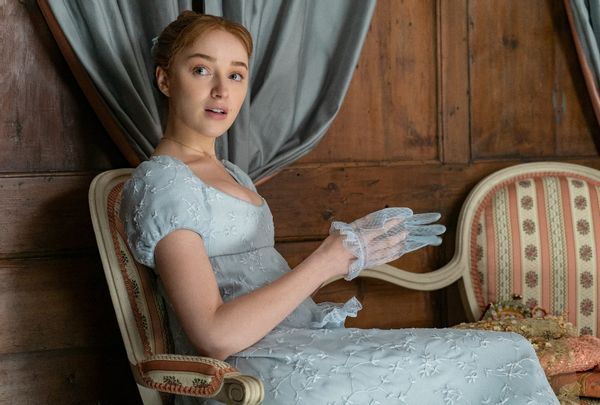
"Bridgerton" may have invested in Vitamin String Quartet's rendition of "Thank U, Next" to bring us into the 2020s, but it chose to hold onto an offensive scene from the original book.
A little plot summary: Daphne thought her husband physically unable to have children, a ruse maintained because she had no idea how babies are actually made. After learning Simon can have children, but has chosen not to (which she learns through an awkward post-coitus tissue-stealing scene), Daphne coerces him into sex that would conceive a child.
It's jolting. The show moves quickly past the assault, framing it around Daphne's feelings of betrayal. In an interview with Entertainment Weekly, showrunner Chris Van Dusen reportedly kept that plot point in the show because "it's a part of her journey," going from "innocent debutante" to a "woman who gets to shed all of the constraints society has held her to, and she finally figures out who she really is and what she's capable of."
But this framing implies someone's assault can be consolidated into their partner's story of personal growth, and it's especially disappointing in a show that calls itself progressive. It's also a jarring departure for a show that seems deeply invested in themes of consent, having depicted how unwanted advances from a man could lock a woman into marriage lest they "ruin" their social standing irrevocably.
And while it's not likely that this exact set of circumstances would be repeated in subsequent seasons, "Bridgerton" could stand to look more closely at the source material it's adapting to see if it makes sense when viewed with modern sensibilities.
2) Colorblind historical fantasy or "color-conscious"alternative history?
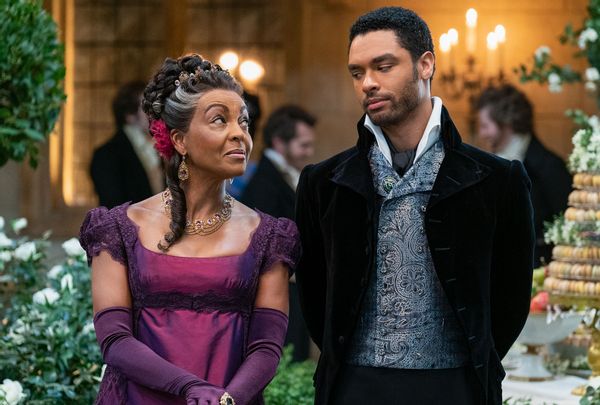
Critics have pointed out "Bridgerton" can't decide whether it's a colorblind historical fantasy, or whether it's trying to offer a "color-conscious" revision of history, as Van Dusen claims it is —the latter of which the show falls short of doing.
I struggle with the way the show lands somewhere in the unconvincing middle. "Bridgerton" selectively tackles matters of race, like in the case of the late Duke of Hastings pressuring his son to appear perfect because "he's not how a duke traditionally looks," Van Dusen told Salon. In other moments, the show fully embraces historical fantasy in neglecting to discuss race at all. Daphne and Simon never discuss what it means to be in an interracial relationship, despite what had been said over the rareness of Simon's title.
The show also struggles with colorism, giving roles more central to the plot to lighter-skinned Black actors — this includes Marina Thompson (Ruby Barker), Simon, dressmaker Genevieve Delacroix (Kathryn Drysdale), Lady Danbury (Adjoa Andoh), and even Queen Charlotte —while relegating darker-skinned actors into bit roles (as in the case of Simon's father). If the show claims to be color-conscious, then what is the conscious colorism choice that it's making? More likely, some unconscious forces are at play, and therefore bears reexamining going forward.
3) The unenviable misfortune of Black women
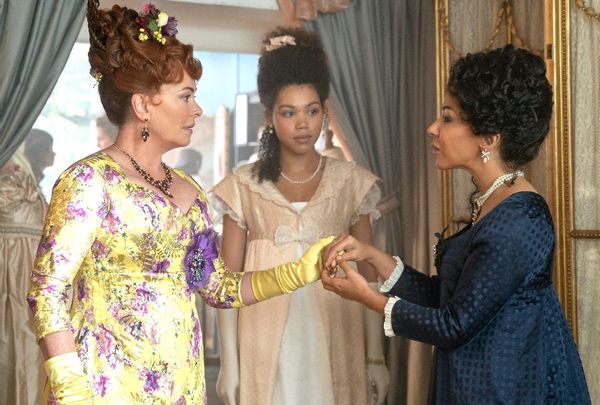
Despite being set in a time when a Black queen supposedly elevates the status of people of color, Black women fare conspicuously poorly in the show.
Marina, the one Black young woman featured on the marriage mart, is bullied by her only friend, outed as pregnant, learns her lover died in the war, and ends the season married to his brother, whom she barely knows. And the only reason that proposal is available to her is because Daphne acts as a white savior, swooping in to locate Marina's lost soldier. In the books, Marina is the Bridgerton clan's distant white cousin, whom readers never actually meet. To say more about her story would be giving away a possible spoiler. In this instance, to change her race to Black for such a tragic outcome hardly seems like equitable treatment.
Madame Delacroix the modiste is possibly the happiest Black woman on the show, but she's successful only on the sufferance of the white gentry who buy into her deception that she is French and therefore buy her dress designs. Even the queen actually ends up as the heartsore queen consort, married to the mad George III, who is indisposed for the series.
By giving white characters the brunt of speaking roles and better outcomes, the show isn't really delivering on being inclusive escapism.
4) Trauma and communication
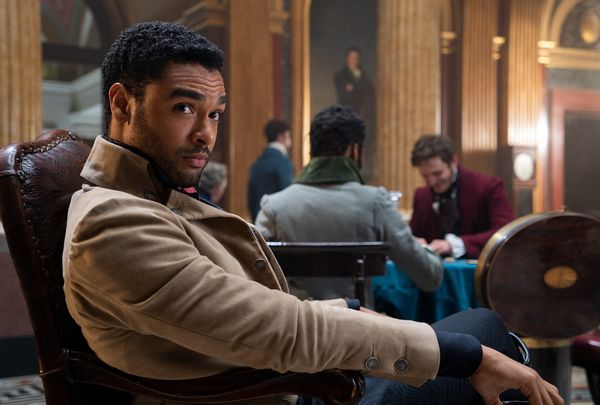
Our rakish hero's troubled temperament can be explained by a troubled upbringing. Simon's father only cared about furthering the Hastings line—to the point of abusing his son, as he struggled with a speech impediment. As a result, Simon made a spiteful "vow" never to have children quite literally over his father's deathbed, in a very dramatic, fairly campy flashback scene.
This trauma obviously shapes Simon's worldview, but the show focuses on two ways it impacts his marriage: through obsessively sticking to this "vow," and the semantic difference between "can't and won't," when Daphne asks him whether they will have children.
So much of the couple's troubles boil down to a standard "this couple can't have a single normal conversation." It's a trope that gets old fast — I'm thinking of my flagging interest in the final episodes of Hulu's romantic drama "Normal People," a show I liked well enough at the beginning. Yes, one of "Bridgerton"'s central themes is the idea that the marriage mart results in matches where husband and wife never really talk to each other (as was common for the time). And it's adapted with a heightened, soap opera-y sense of dramatic irony conveyed through longing glances, annoyed walking, and maidenly sighing.
But it's also set in a fictitious world where a woman is free to turn down a proposal from a Prince in order to "save" her Duke, and where that Duke repeatedly crossed lines during their courtship. There's some latitude to give trauma more space than "backstory." And there will be opportunities to do so in the next season, as many of Anthony's own hang-ups in his search for a spouse tie back to the trauma of losing his father at a young age.
5) Sexier sex scenes
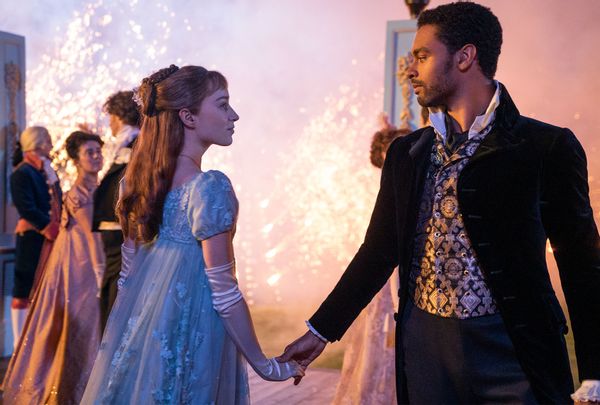
"Bridgerton" definitely is not lacking for sex scenes. But the show's gestures towards catering to the female gaze — lots of oral sex and objectifying the male lead — aren't enough to make sex scenes actually feel sexy. True on-screen horniness is more than urgent missionary on marble steps, rutting up against a tree (ouch), or being pushed up against a bookshelf (even if the library itself is enviable).
It's a matter of building chemistry and paying off tension — something the first half of the season does so much better without even showing us the two leads having sex. It's that building of chemistry through banter and impropriety, and then ramping up anticipation through restraint — in moments as subtle as the brush of fingers at an art gallery, or as direct as Simon asking Daphne (as he gazes intently) if she's ever touched herself.
The second half gives us a honeymoon, but it's a little too glossy, a little too perfunctorily picture perfect for us to really feel anything. When sex scenes inspire laughter for its happy ending instead of sighing, that's a misfire.


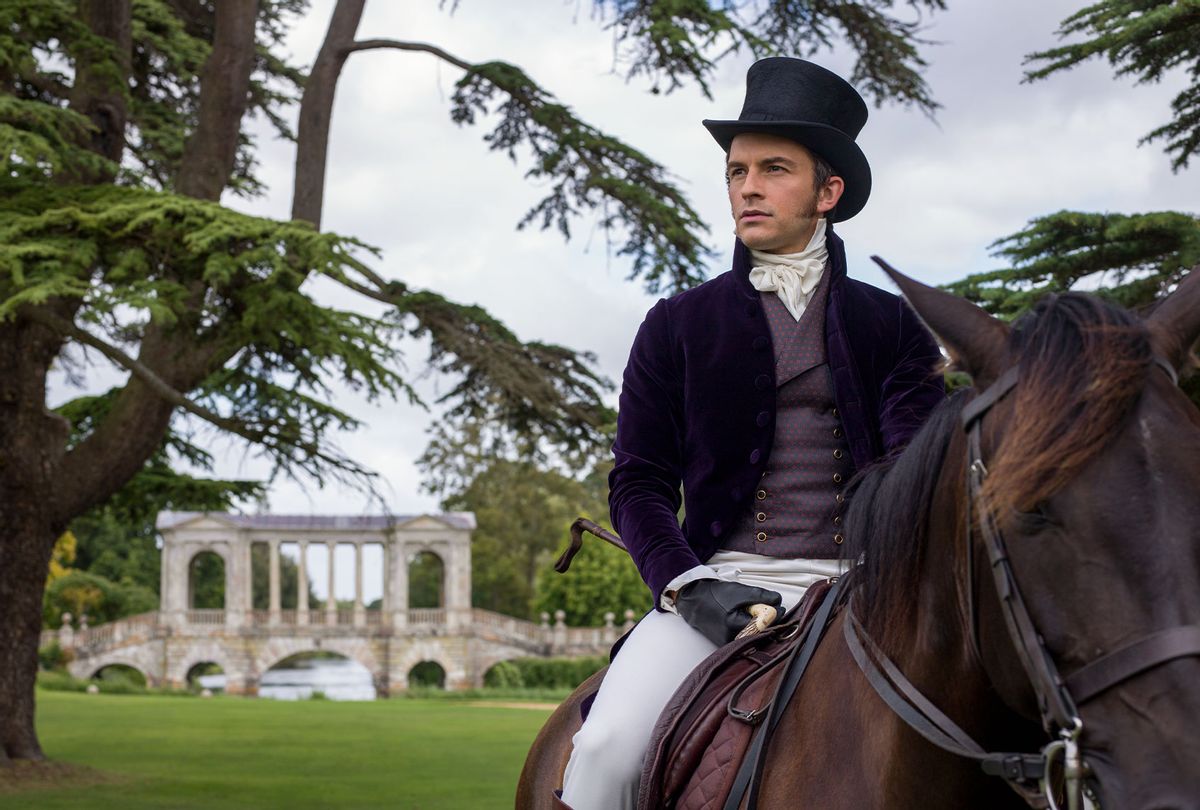
Shares